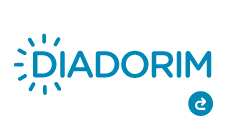KNOWLEDGE OF HEALTH GRADUATES FROM THE STATE UNIVERSITY OF MARINGÁ ABOUT THE IMPACT OF ABSORBENTS ON THE ENVIRONMENT
Abstract
This study investigated the knowledge of health students at the State University of Maringá (UEM) about ecological alternatives and the environmental impact of disposable pads. An online questionnaire was used and the analysis involved quantitative and qualitative approaches. Results revealed that the majority think it is important to discuss menstruation, methods and disposal of sanitary pads. However, this contrasts with the lack of inclusion of these topics in the curriculum. More than 80% of participants were unaware of the decomposition time of disposable pads. Regarding ecological options, many were aware of these alternatives. It was found that the majority still use disposable pads, although they are interested in ecological methods. The price was important when purchasing pads, affecting the family income of some participants. It was concluded that health students at UEM have gaps in their knowledge of the environmental impact of disposable pads, despite being aware of ecological options, which is promising, considering their future in assisting the population.
Downloads
References
BARROS, B. S et al. ERICA: age at menarche and its association with nutritional status. Jornal de Pediatria, Rio de Janeiro, v. 95, n. 1, p. 106–11, jan. 2019. Disponível em:
BARROS, M. E. A.; et al. Meio ambiente: menstruação e sustentabilidade. Mostra Interativa da Produção Estudantil em Educação Científica e Tecnológica, 2022.
BRASIL. Constituição da República Federativa do Brasil. Brasília, DF: Senado Federal: Centro Gráfico, 1988.
CABRAL, D. Menstruação, absorventes descartáveis e seus impactos ambientais. Deviante. 2019. Disponível em: Menstruação, absorventes descartáveis e seus impactos ambientais - Deviante
COUSINS, S. Rethinking period poverty. Word report. v. 395, 2020. DOI: https://doi.org/10.1016/S0140-6736(20)30605-X
CRICHTON, J.; et al. Emotional and Psychosocial Aspects of Menstrual Poverty in Resource-Poor Settings: A Qualitative Study of the Experiences of Adolescent Girls in an Informal Settlement in Nairobi. Health Care for Women International. v. 34, p.891-916, 2013. DOI: 10.1080/07399332.2012.740112.
DE ANDRADE, R. M.; et al. Análise do conhecimento das estudantes de medicina acerca do coletor menstrual. Brazilian Journal of Development, v. 7, n. 9, p. 90073-90090, 2021.
FREITAS K. R.; DIAS S. M. Z. Percepções de adolescentes sobre sua sexualidade. Texto Contexto Enferm. v.19, n.2, p. 351-7, 2010. Available from: http://www.scielo.br/pdf/tce/v19n2/17.pdf
GADOTTI, M. Extensão Universitária. São Paulo: Instituto Paulo Freire, 2017. Disponível em: https://www.paulofreire.org/images/pdfs/Extens%C3%A3o_Universit%C3%A1ria__Moacir_Gadotti_fevereiro_2017.pdf. Acesso em: 18/06/2023.
IMPOSTÔMETRO. Relação de Produtos. 2021. Fonte: Impostômetro: https://impostometro.com.br/home/relacaoproduto
INSTITUTO AKATU. Descobrindo o consumidor consciente. Disponível em >https://www.akatu.org.br/wp-content/uploads/2017/04/19-Pesquisa7.pdf>. Acesso em 09 de junho de 2021.
LEITE, P. R. Logística reversa – Sustentabilidade e competitividade. 3º ed. Saraiva. 2017.
MARVÁN, M.L.; et al. The decreasing age at menarche in Mexico. J Pediatr Adolesc Gynecol. 2016; v. 29 p. 454- 457
MCMAHON, S. A.; et al. The girl with her period is the one to hang her head: Reflections on menstrual management among schoolgirls in rural Kenya. BMC International Health and Human Rights. v. 11, n.7, 2011.
MOREIRA, L. P. A. Pobreza Menstrual no Brasil: Diagnóstico e Alternativas. Fundação Getulio Vargas, Escola de Administração de Empresas de São Paulo. São Paulo, 2021.
PÊGO, L.; LUPPI, S. Absorventes descartáveis x meio ambiente: as consequências e os caminhos viáveis para a redução de danos. 2021. Agemt, Jornalismo PUC-SP (pucsp.br). Acesso em 18/09/2022.
PEREIRA, S. B. O comportamento do consumo da mulher: um estudo sobre a compra alternativas ecológicas aos absorventes. Trabalho de Conclusão de Curso do Programa de Graduação em Administração da PUC-Rio. 2019. Disponível em
ROSSOUW, L.; ROSS, H. Understanding Period Poverty: Socio-Economic Inequalities in Menstrual Hygiene Management in Eight Low- and Middle-Income Countries. Int. J. Environ. Res. Public Health, 2021. https://doi.org/10.3390/ijerph18052571.
SILVA, S. P. R. Isenção de impostos IPI e ICMS para a comercialização de absorventes femininos. Revista Especialize On-line IPOG. Goiânia. 9. Ed. v. 1, n. 16, 2018.
SOMMER M, et al. The Extent to Which Menstruation-Related Issues Are Included in Graduate-Level Public Health Curricula. Front Public Health. 2020; v. 8, p. 442. Published 2020 Aug 28. doi:10.3389/fpubh.2020.00442
SOUSA, W. M. Brasil tributa absorventes com carga equivalente a itens supérfluos. Unieducar. 2021. Disponível em: Brasil tributa absorventes com carga equivalente a itens supérfluos | Unieducar. Acesso em 25/09/2022
SOUZA, M. G. M. Percepções acerca do uso dos absorventes convencionais descartáveis e absorventes ecológicos de pano. 2022. 43 f. Orientadora: Elaine Silva Dias. Trabalho de Conclusão de Curso (Licenciatura em Ciências Biológicas) - Universidade Federal Rural da Amazônia, Capanema, 2022.
TIAKI, K. National group adopts bicultural leadership. Nursing New Zealand. v. 26, n. 5. 2020.
UNIVERSIDADE ESTADUAL DE MARINGÁ. Base de dados 2019: ano base 2018. Pró-Reitoria de Planejamento e Desenvolvimento Institucional. Coordenação geral Márcia Marcondes Altimari Samed. Elaboração e revisão João Marcelo Crubellate, Márcia Marcondes Altimari Samed, Fernanda Janete Ferreira Viudes. Maringá. PR: UEM-PLD, 2019. 63 p. Disponível em: http://www.pld.uem.br/diretorias/dpo/lni-1/imagens-arquivos/base-de-dados-2019.pdf.
WELLER, W.; PAZ, C. D. A. Gênero, raça e sexualidade nas políticas educacionais: avanços e desafios. Acesso em, v. 30, 2013.
WONG, L. P.; KHOO, E. M. Dysmenorrhea in a multiethnic population of adolescent Asian girls. International Journal of Gynaecology and Obstetrics. v. 108, p. 139–42. 2010.
YONKERS, K. A.; SHAUGHN, O. P. M.; ERIKSSON, E. Premenstrual syndrome. Lancet. v. 371, n. 9619, p.1200–1210. 2008.
DECLARAÇÃO DE ORIGINALIDADE E DIREITOS AUTORAIS
Declaro que o presente artigo é original, não tendo sido submetido à publicação em qualquer outro periódico nacional ou internacional, quer seja em parte ou em sua totalidade.
Os direitos autorais pertencem exclusivamente aos autores. Os direitos de licenciamento utilizados pelo periódico é a licença Creative Commons Attribution 4.0 (CC BY ): são permitidos o acompartilhamento (cópia e distribuição do material em qualqer meio ou formato) e adaptação (remix, transformação e criação de material a partir do conteúdo assim licenciado para quaisquer fins, inclusive comerciais.

Recomenda-se a leitura desse link para maiores informações sobre o tema: fornecimento de créditos e referências de forma correta, entre outros detalhes cruciais para uso adequado do material licenciado.

















